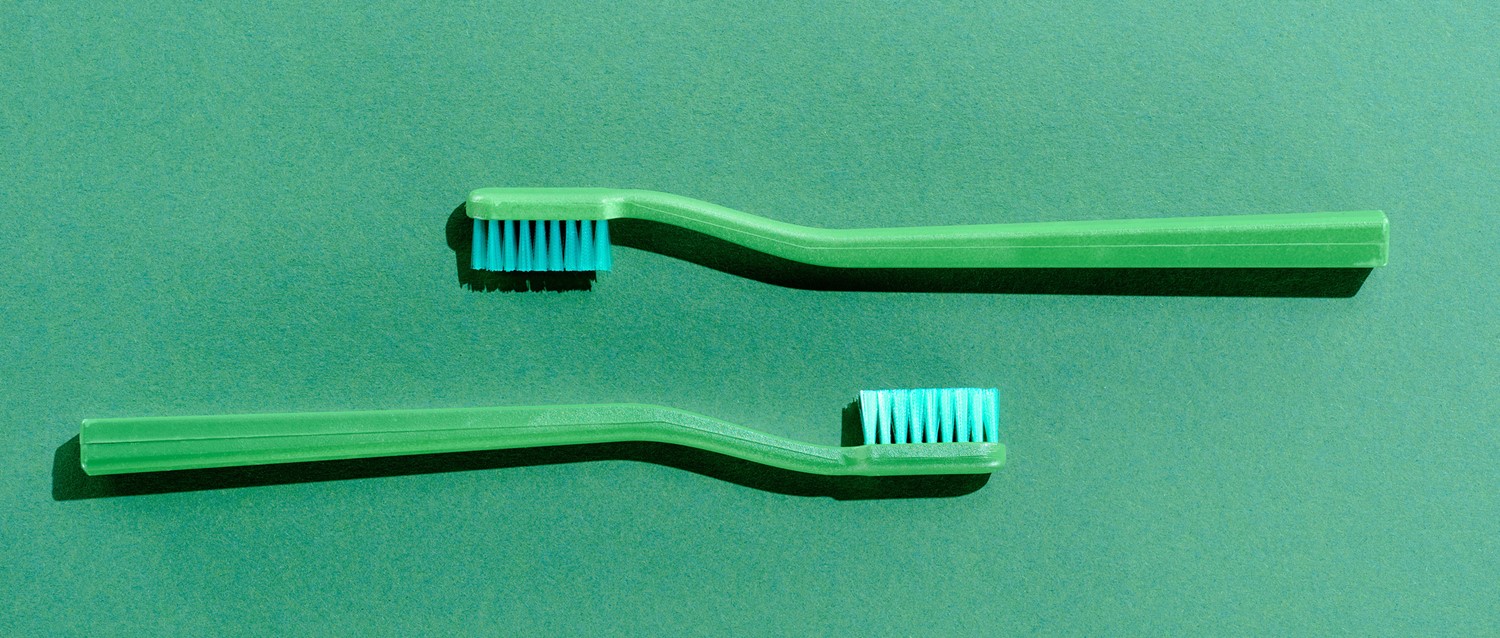
What’s causing your morning breath?
Peer reviewed by Dr Krishna Vakharia, MRCGPLast updated by Amberley DavisLast updated 22 Feb 2024
Meets Patient’s editorial guidelines
- DownloadDownload
- Share
- Language
- Discussion
Morning breath, when you wake up with a dry and unpleasant taste in your mouth, is a common inconvenience. Here we let you know what you can do about it - and when it's a sign that something is wrong.
In this article:
Video picks for Other oral problems
Does everyone get morning breath?
Everyone gets morning breath to some degree. This is because during sleep, your mouth produces less saliva and more odour-causing bacteria.
For most people, bad morning breath - also called halitosis - is mild and easily eliminated when you brush your teeth. However, if you're finding it particularly potent and unpleasant, or if your basic dental routine isn't fully resolving the problem, you need to identify if there's an underlying issue that needs to be addressed.
What causes morning breath?
Back to contentsWhat else besides sleep can make morning breath worse? According to cosmetic dentist Dr Sam Jethwa, possible factors include health conditions, our dental habits, and the food we eat.
Here are some of the most likely causes for your bad morning breath:
Continue reading below
Dry mouth
Back to contentsWhen our bodies produce less saliva during sleep, this makes our mouths a little dryer first thing in the morning. Saliva keeps your mouth moist and also helps to keep your teeth clean and free from bacteria1. A dry, saliva-free mouth is a breeding ground for bacteria that can cause bad breath.
This is known as dry mouth, or xerostomia, and this can be more of a problem for some people than for others. If this is a particular issue for you, alongside a dry mouth you may find it more difficult to swallow or to speak, due to your saliva becoming thick and sticky. Some people also experience a slight burning sensation in their mouths.
Dr Jethwa explains that dry mouth and morning breath tends to be more severe in people who sleep with their mouths open. This is why people who snore are more prone to bad breath in the morning. There are also certain conditions such as Sjogren's syndrome in which there is less saliva and tear production.
The food we eat
Back to contents"The food we eat is broken down in our mouth and then absorbed into our bloodstream," says Dr Jethwa, "so it stands to reason that eating foods that contain a strong odour - such as garlic or onions - before going to bed can cause your breath to smell in the morning."
He adds that while brushing and flossing your teeth can temporarily help the smell fade, it won't usually disappear completely until the foods have passed through your body. While it could result in some mildly embarrassing social interactions, this issue is not anything to worry about.
Another common cause of morning breath is not eating enough, a common symptom of over-dieting, according to Dr Jethwa. "This is because when your body breaks down fat, chemicals are released that can cause your breath to smell bad."
Continue reading below
Poor dental hygiene
Back to contentsIf your morning breath is particularly potent, look at your oral hygiene habits and ask yourself if you're doing enough to keep your mouth clean.
Data from the Oral Health Foundation reveals that 1 in four adults do not brush their teeth twice a day with a fluoride toothpaste, and almost 1 in 3 have tooth decay2.
Dr Jethwa describes what happens when you don't practise good dental hygiene: "Food particles remain in your mouth which causes bacteria to grow between the teeth and gums as well as on the tongue. This bacterial growth results in bad breath."
Tooth decay can cause several problems, including toothache, a dead tooth, and gum disease.
Gum disease
Back to contentsGingivitis, a mild form of gum disease, can also cause bad morning breath. Look out for the other main symptoms, which are irritation, redness, and swelling or bleeding of the gingiva, which is the part of the gum around the base of your teeth.
In its more serious form, known as periodontal disease, your tooth may loosen or even fall out due to your gums pulling away from your tooth. Sensitive teeth, pain while chewing, and any change in the way your teeth fit together when you bite are all indicators of this problem3.
If you experience any of the above symptoms, you should visit your dentist as soon as possible so the damage can be treated and managed.
Other diseases and disorders
Back to contentsSometimes, noticing that your breath has become worse is a sign of a serious issue somewhere else in your body. For example, some cancers and also digestive conditions like gastro-oesophageal reflux disease (GORD) produce chemicals in your body that cause a distinctive breath odour.
If you find that the good dental hygiene techniques that follow don't improve your breath, visit your dentist or GP to either rule out or identify a serious health issue.
How to get rid of morning breath
In case poor dental hygiene is the root of your problem, make sure you consistently follow these at-home measures and see how much your morning breath improves.
On a basic level, this involves regular brushing and flossing, both in the morning and before bed.
Dr Jethwa also recommends using an interdental cleaner and to clean your tongue with a tongue scraper, as these tools can help to reduce the build-up of bacteria in the mouth and also reduce the risk of gum disease.
Dr Jethwa points out that looking at other lifestyle factors can also help. This includes stopping smoking, reducing alcohol content and looking at the food that you eat before bed.
While a mouth rinse or mint gum can temporarily combat morning breath, these should be used in addition to - not instead of - regular brushing and flossing, as these won't address the cause of the problem.
If you have dry mouth, there are sprays and gels designed to keep your mouth moist and many contain ingredients that also help to prevent gum and tooth problems1.
Further reading
Back to contentsPatient picks for Other oral problems

Oral and dental care
How long will a mouth ulcer take to heal?
There's nothing more annoying than biting into a well-earned snack but having your enjoyment marred by the sting of a mouth ulcer. These tiny sores can be irritating and painful, and seem to take an age to clear up. But what causes mouth ulcers, how can we prevent them, and when should we worry?
by Gillian Harvey

Oral and dental care
The reasons behind your bad breath
Whether it's one too many coffees, a spicy sandwich at lunchtime or a little dehydration, we've all experienced a bit of bad breath from time to time. In most cases, a quick swill with mouthwash or a trip to the bathroom for a brush will sort the problem out. But what if we find ourselves suffering from bad breath on a regular basis? We look at the conditions that can lead to a more chronic problem.
by Gillian Harvey
Continue reading below
Article history
The information on this page is peer reviewed by qualified clinicians.
22 Feb 2024 | Latest version
11 Nov 2022 | Originally published
Authored by:
Amberley Davis

Ask, share, connect.
Browse discussions, ask questions, and share experiences across hundreds of health topics.

Feeling unwell?
Assess your symptoms online for free
Sign up to the Patient newsletter
Your weekly dose of clear, trustworthy health advice - written to help you feel informed, confident and in control.
By subscribing you accept our Privacy Policy. You can unsubscribe at any time. We never sell your data.